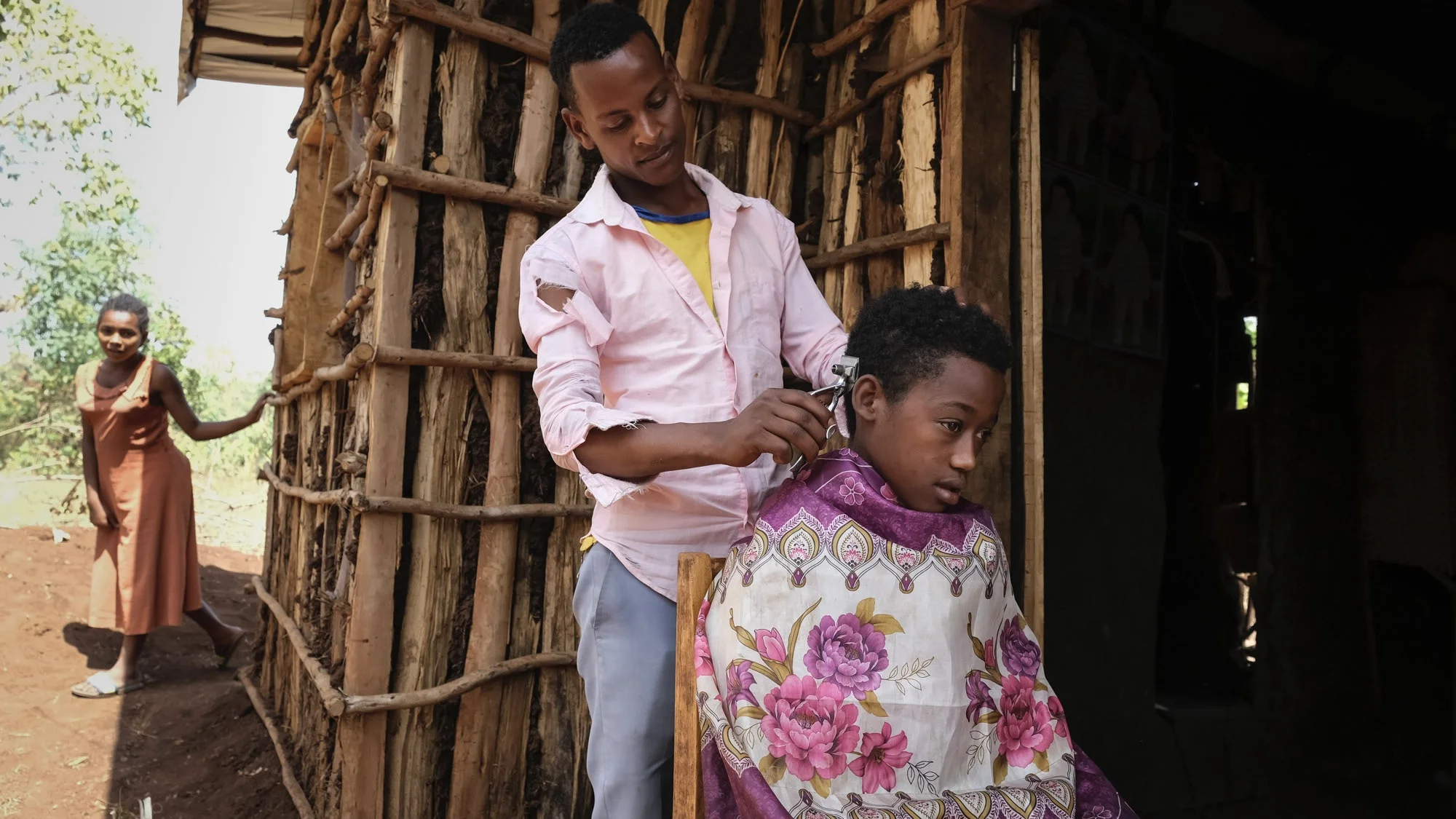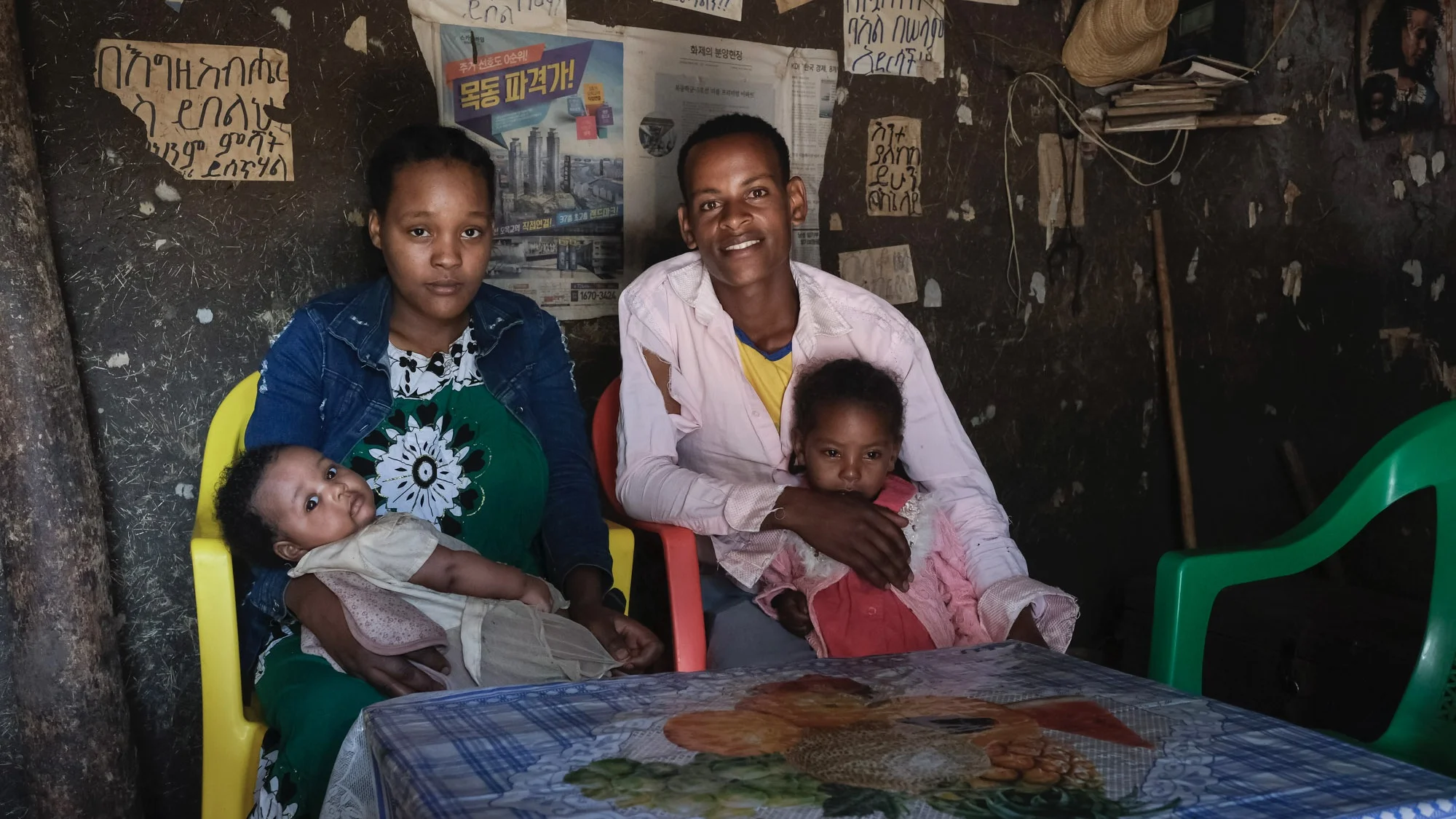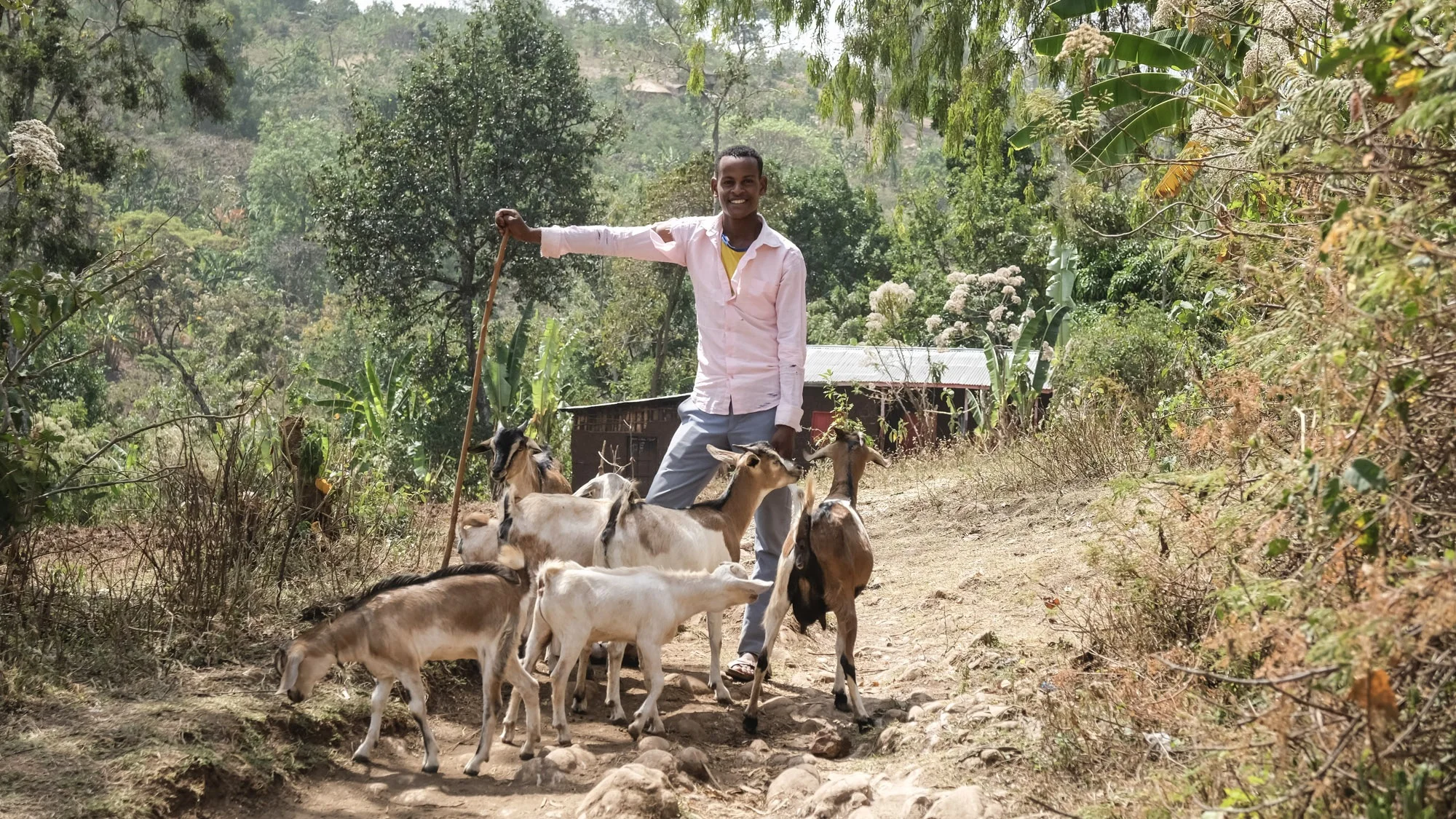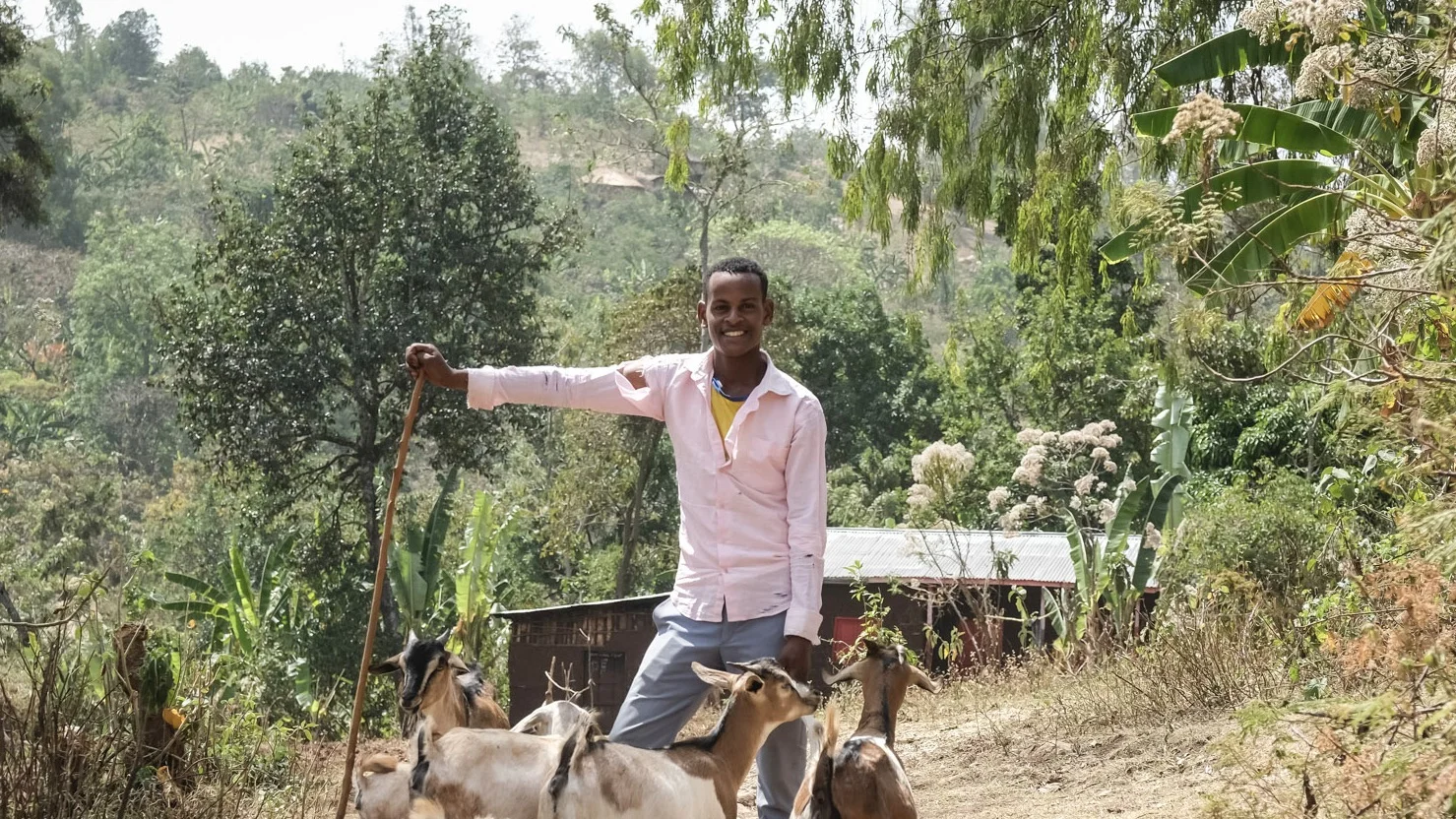After the ninth grade, Petros Yonte had to drop out of school because of poverty. But how does he earn money to survive? In his home district of Abaya, there are no crafts, no industry. The unskilled work in agriculture only brings in starvation wages. One opportunity lies in small businesses. Menschen für Menschen helps young entrepreneurs to build a livelihood.
After school, Petros worked as a livestock dealer. He looked for goats and sheep at the weekly markets, negotiated the price with the farmers and received a - much too small - commission from the dealer.
Petro's life would have continued like this, and his two little daughters would have grown up in poverty if Menschen für Menschen in the village had not initiated a cooperative savings group and provided it with start-up capital. The members there granted Petro a loan of the equivalent of 300 francs. "With this sum I can buy eight goats or sheep - and sell them again at a later date or at another market." On good market days he earns twelve francs - his income has more than tripled.

But not every day is market day. So the 27-year-old has diversified: "I bought an electric hair clipper." For 36 cents he cuts his customers' hair at his stand on the market square, where there is electricity. "I learned the trade from other hairdressers."
He has built a mud house on the family farm - he hopes to get an electricity connection there soon so that he can set up a modern hairdressing salon with a tea room. But the lack of electricity cannot stop Petros: for the time being, he is still giving his customers new hairstyles with a mechanical hair clipper.

WHY WE HELP
In the Gelana and Abaya districts, agricultural methods are outdated and not very productive. Young people need income and prospects so that they do not have to migrate to the cities as poverty refugees.
WHAT WE ACHIEVE
In total, we support around 200 young people like Petros in the rural districts of Abaya and Gelana with microcredits. They take vegetables to the market in donkey carts, trade in grain, raise chickens, and fatten up small livestock. The aim of these start-ups is to enable them to build a decent life in their homeland. Their repayments go to cooperative savings groups, which then issue new loans.







